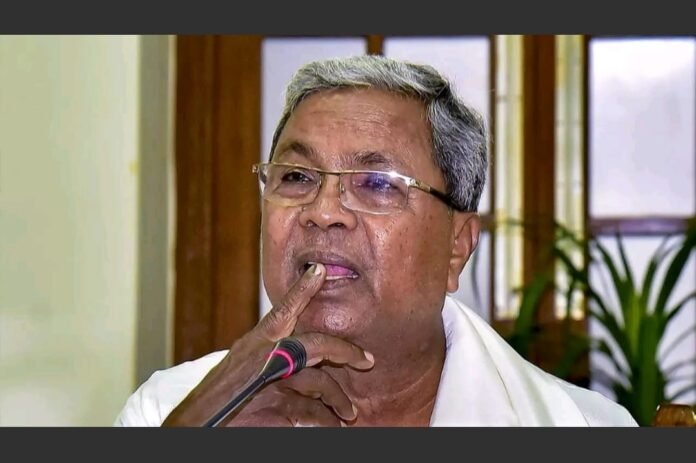In a recent development, a government lower primary school teacher in Kaanubenahalli, Hosadurga taluk, Chitradurga district has been suspended for making critical posts on Facebook regarding the fiscal policies of the newly sworn-in Chief Minister, Siddaramaiah. The suspension has ignited debates on freedom of expression and the boundaries of social media usage by government employees.
The teacher, whose identity has been withheld, expressed their discontent with the fiscal strategies implemented by Chief Minister Siddaramaiah through a series of posts on their personal Facebook account. These posts specifically criticized the Chief Minister’s approach of offering freebies and its potential impact on the state’s economy.
Following the circulation of these posts on social media platforms, a complaint was lodged by an unknown individual, which eventually led to the teacher’s suspension. The suspension order was issued by the concerned education authorities in Tumakuru, indicating that the teacher’s actions were in violation of the code of conduct and professional ethics expected from government employees.
The decision to suspend the teacher has sparked a debate about the balance between freedom of expression and the responsibilities of government employees. Supporters argue that individuals have the right to express their opinions, even if critical, as long as it is done in a respectful and lawful manner. They emphasize the importance of open dialogue and dissent in a democratic society.
On the other hand, proponents of the suspension believe that government employees, including teachers, should exercise caution when expressing their views on public platforms, especially when they pertain to their professional domain. They argue that such criticisms might not only create a negative perception but could also be seen as a breach of the employee’s duty to maintain political neutrality.
This incident has prompted discussions on the need for clear guidelines regarding the usage of social media by government employees. It has also raised questions about the potential consequences of online expressions and the boundaries that should be established to strike a balance between personal opinions and professional responsibilities.
Meanwhile, local education authorities have initiated an inquiry into the matter to ascertain the extent of the teacher’s posts and their potential impact on the school environment. The outcome of the inquiry will determine whether further disciplinary action will be taken against the teacher or if they will be reinstated after a warning or period of suspension.
As this situation unfolds, it serves as a reminder for individuals, especially those working in government positions, to be mindful of their online presence and the potential ramifications of their social media activities. Balancing personal opinions with professional responsibilities remains a critical aspect of maintaining a harmonious work environment.

